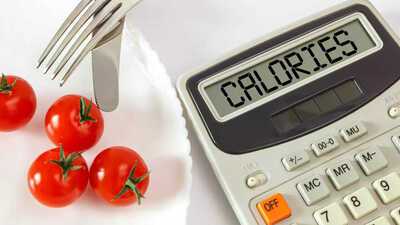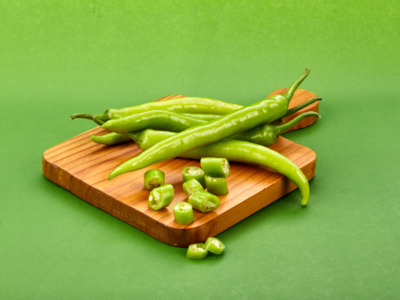Are you on a strict diet? Wondering how to limit calories and stick to your nutritional requirements? During weight loss, people are often advised to be on calorie calorie-deficient diet. But how does one control the appetite and not overeat? Well, the trick is to add a certain vegetable to your meal. A recent study found that adding a certain vegetable, which is also a spice, can help you cut back on calories.
A new study led by researchers at the University’s Sensory Evaluation Center found that spicing up your meal could do just the right thing. The findings of the study are published in the journal Food Quality and Preference.
Spice it up

The new study found that adding a little heat to your meal might be an effective strategy for cutting back on calories. The researchers looked at how increasing ‘oral burn’, which is the spicy taste from ingredients like chili pepper, affects how much food people consume during a meal. They found that making the meal slightly spicier results in less consumption, leading to fewer calories.
“We know from previous studies that when people slow down, they eat significantly less. We suspected that making a meal spicier might slow people down. We thought, let's test, under controlled experimental conditions in the lab, if adding a small amount of spice, but not so much that the meal is inedible, will make people eat slower and therefore eat less,” Paige Cunningham, a postdoctoral researcher and lead author of the study, said in a statement.
They found that amping up with spiciness by adding dried chili pepper slowed down eating and reduced the amount of food and energy consumed at a meal. Also, this did not negatively affect the palatability of the dish.

“This points to added chilies as a potential strategy for reducing the risk of energy overconsumption. While portion control wasn’t the explicit goal of this study, our results suggest this might work. Next time you're looking to eat a little less, try adding a blast of chilies, as it may slow you down and help you eat less,” John Hayes, Penn State professor of food science and corresponding author, added.
The study

To understand how spiciness could lead to reduced food and calorie intake, the researchers conducted three experiments, involving 130 adults, who were served one of two lunch meals - beef chili or chicken tikka masala. One version was prepared with mild spices, and the other was spicy. The spiciness level was controlled by carefully varying the ratio of hot versus sweet paprika added to the dishes to vary the heat while keeping chili flavor constant.
The researchers measured the amount of food and water consumed, meal duration, eating speed of grams per minute, bite rate, bite size, and collected ratings on appetite, liking, and spiciness before and after the meal.
“Formulating the recipes took a long time for the chicken tikka. It took so many rounds of testing that my lab mates were sick of it. But science is about trial and error. I'd make a recipe, see how far I could push the spiciness, and we'd taste it. We did that until we reached a level where palatability was matched even when spiciness increased,” Cunningham said.
Video
“What’s critical here is that the reduction in intake occurred without negatively impacting how much participants liked the food,” Hayes said.
A new study led by researchers at the University’s Sensory Evaluation Center found that spicing up your meal could do just the right thing. The findings of the study are published in the journal Food Quality and Preference.
Spice it up
The new study found that adding a little heat to your meal might be an effective strategy for cutting back on calories. The researchers looked at how increasing ‘oral burn’, which is the spicy taste from ingredients like chili pepper, affects how much food people consume during a meal. They found that making the meal slightly spicier results in less consumption, leading to fewer calories.
“We know from previous studies that when people slow down, they eat significantly less. We suspected that making a meal spicier might slow people down. We thought, let's test, under controlled experimental conditions in the lab, if adding a small amount of spice, but not so much that the meal is inedible, will make people eat slower and therefore eat less,” Paige Cunningham, a postdoctoral researcher and lead author of the study, said in a statement.
They found that amping up with spiciness by adding dried chili pepper slowed down eating and reduced the amount of food and energy consumed at a meal. Also, this did not negatively affect the palatability of the dish.

“This points to added chilies as a potential strategy for reducing the risk of energy overconsumption. While portion control wasn’t the explicit goal of this study, our results suggest this might work. Next time you're looking to eat a little less, try adding a blast of chilies, as it may slow you down and help you eat less,” John Hayes, Penn State professor of food science and corresponding author, added.
The study
To understand how spiciness could lead to reduced food and calorie intake, the researchers conducted three experiments, involving 130 adults, who were served one of two lunch meals - beef chili or chicken tikka masala. One version was prepared with mild spices, and the other was spicy. The spiciness level was controlled by carefully varying the ratio of hot versus sweet paprika added to the dishes to vary the heat while keeping chili flavor constant.
The researchers measured the amount of food and water consumed, meal duration, eating speed of grams per minute, bite rate, bite size, and collected ratings on appetite, liking, and spiciness before and after the meal.
“Formulating the recipes took a long time for the chicken tikka. It took so many rounds of testing that my lab mates were sick of it. But science is about trial and error. I'd make a recipe, see how far I could push the spiciness, and we'd taste it. We did that until we reached a level where palatability was matched even when spiciness increased,” Cunningham said.
Video
“What’s critical here is that the reduction in intake occurred without negatively impacting how much participants liked the food,” Hayes said.
You may also like

US, China extend trade truce another 90 days, easing tension between world's largest economies

US: Texas Target Store Shooting Leaves 3 Dead; Suspect In Custody

Delhi Police arrest 7 auto-lifters, two proclaimed offenders in separate operations

Dehradun schools, Anganwadi centres closed today as IMD rings heavy rain alert

Kalyan-Dombivli Bans Meat Sales on Independence Day, Sparks Controversy






